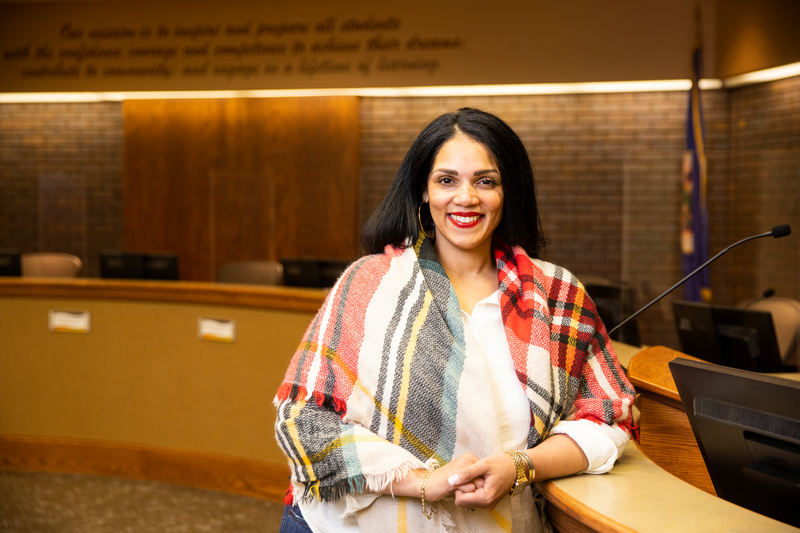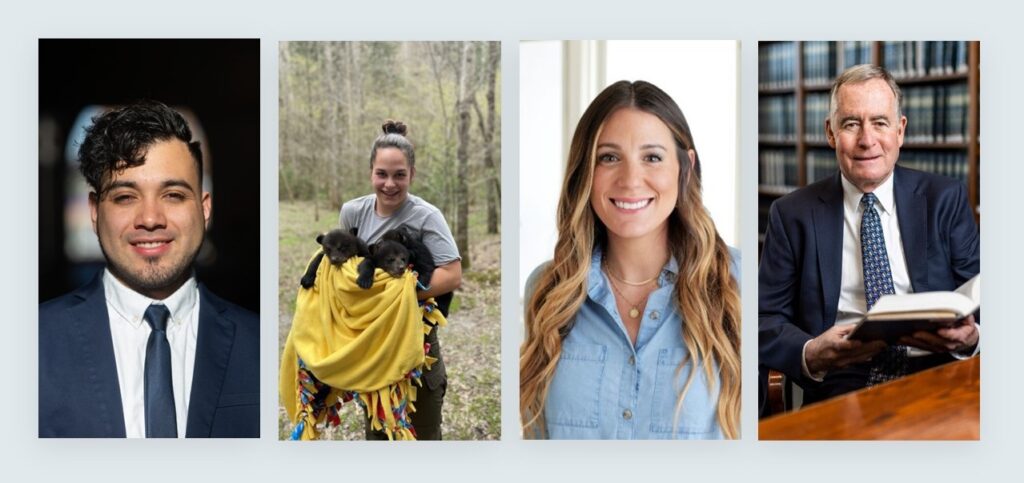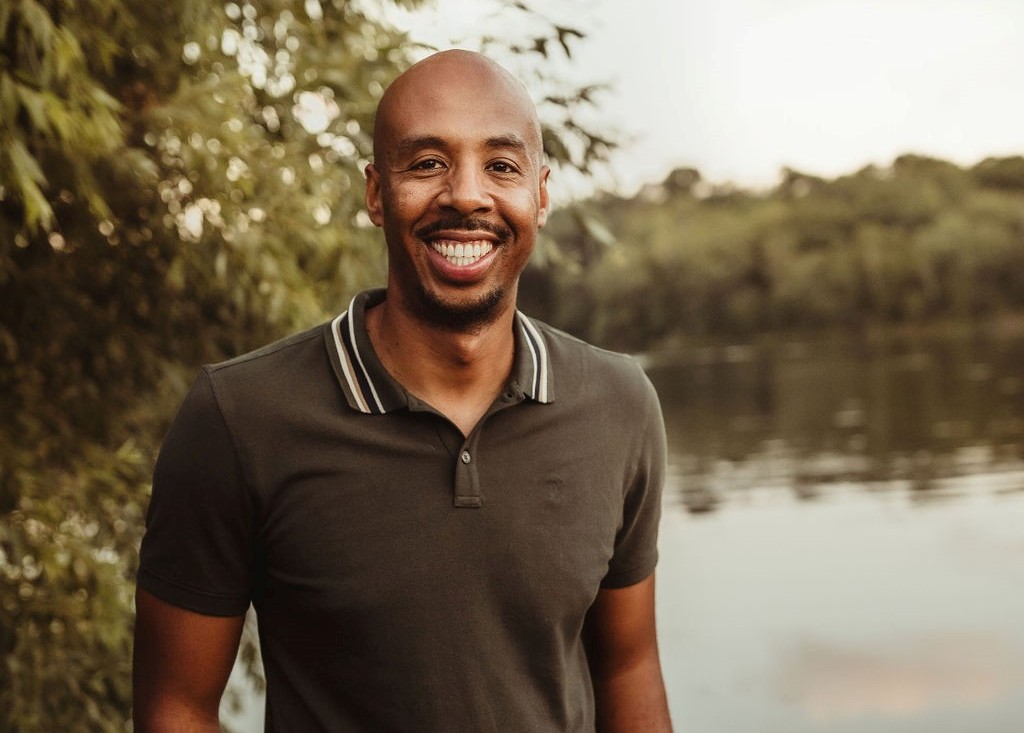St. Thomas alumna Kelsey Dawson Walton '02, '09 MA likes to flash passersby with a warm, welcoming smile.
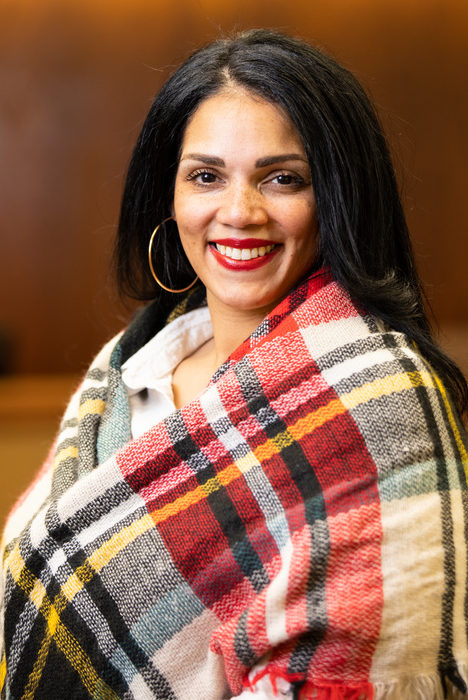
“That's the kind of thing that I think sometimes can be missing in our world,” she said. “I think when you show humanity then you do open doors in life for yourself.”
And some doors have opened for her that were previously closed to others. For one, she’s the first African American woman elected in recent years to the school board for the Osseo Area School District, and subsequently she was elected board chair.
In other capacities, she also serves as chair of the Association of Metropolitan School Districts and division manager for the newly created Hennepin County Engagement Services.
“When I think about my kids and the legacy I want to leave behind, it is that kindness and that relationship and that feeling [you get] when people feel like they can come to you and that you can be a resource,” she said.
It all circles back to connectedness, which is at the heart of her approach to changing systems. She credits this approach to her time at the University of St. Thomas.
“It gave me a voice that I didn't have before and a path forward,” Dawson Walton said.
In 1998, the Brooklyn Park native was among the inaugural class of Reaching Excellence in Academic and Leadership (REAL) program, a five-week academic and orientation summer program at St. Thomas to transition accepted first-year students of color before their freshman year. There, she established lifelong friendships.
Majoring in political science with a minor in Black cultural studies, Dawson Walton interned at the American Bar Association through the Washington Semester and worked at a homeless shelter after graduation. Both experiences impressed upon her the need for change at a systems level.
She spent a few years working for U.S. Congressman Jim Ramstad before returning to St. Thomas for a master’s degree in public policy and leadership. The program taught her much on the importance of relationships and effective policymaking. Dawson Walton did an externship with a lobbying firm before working for a county commissioner and eventually landing at a new division of Hennepin County building internal capacity around engagement and cultural responsiveness.
You’re one of the first African American women on the Osseo School Board. What inspired you to run for the school board?
My parents had always instilled in me the value of education and the importance of advocating for your child, especially if you have brown and Black children. You have to be their No. 1 advocate. So, I was and I was super involved in [my kids’] school.
One day, one of the board members in our district made some really racist statements. It piqued my interest. I was like, I have to be on the school board because I can't let my kids or Black kids be led by somebody who is racist.
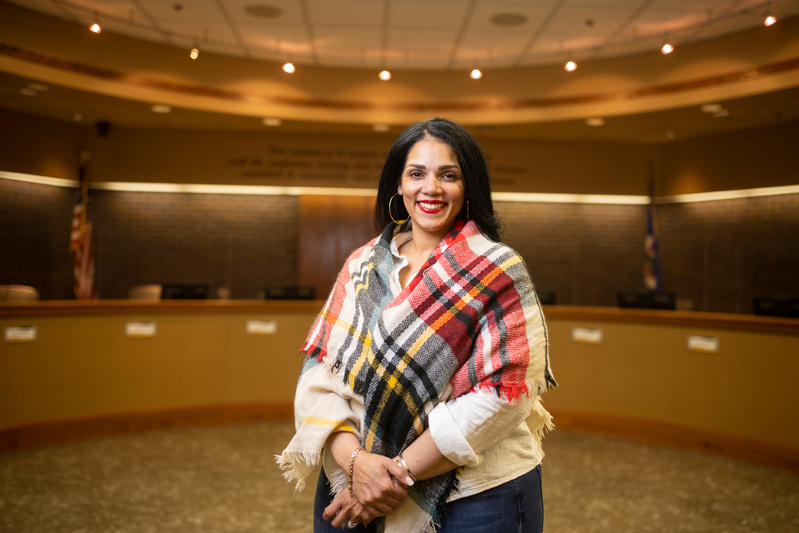 Liam James Doyle / University of St. Thomas
Liam James Doyle / University of St. ThomasYou were also elected school board chair. Are there any challenges as an African American leader?
Being a female leader, of especially African American/Black descent, kinda gets isolating. It gets lonely. You constantly are trying to be careful you're not saying something perceived to be too aggressive or trying to even make it so it's about everybody. People have many assumptions: 'You only care about Black kids.' And it's like, no, I care about every single kid. You get boxed in so easily.
What are some initiatives that you’ve been excited about?
With the school board, I'm most excited about some of the things that we're launching.
We finally have student school board representatives. It's always been something that I've wanted to have. We want representatives from all of our high schools to have a voice at our board meetings and when things are coming up on our agendas. That just got started.
This year, we will be launching a legislative action committee within the district. I think that's another way to engage our families, district community and scholars. We get a lot of our money from the state and as we develop our legislative platform and hear the lived stories of people, that's probably the most impactful aspect of any legislative advocacy.
We also have our RISE Committee, which is focused on parents and caregivers of color, to start to tell the stories, and to start advocating for voices of our families of color and how we're engaging and how to address all sorts of issues, academics to accountability measures.
Hennepin County launched a new division to pioneer community engagement in January 2020, just shortly before *gestures around* everything. How did the division use community engagement to serve the community?
At the time, we weren't able, as a county, to be out all the time in the community, but there was such a need to connect because two huge things were happening that were changing the entire world.
Recognizing that internally many of us at Hennepin County are staff of color, we started to get our cultural leads together to start to influence when Hennepin County makes decisions to ensure there is input from various communities that have historically been disenfranchised from the system and from decision-making. And then utilizing an approach where we would bring in people from the community and compensate them, like have a trusted messenger program where we talk to people to get feedback.
We would ask, ‘These are the priorities for Hennepin County: What do you think? What do we need during the COVID pandemic?’ But I would hear from our Somali lead, 'Hey, this is great information about COVID-19, but really, we need information about opioids. There's an opioid crisis, and we're losing so many youth.'
So, being able to pivot and say, ‘OK, Hennepin, what kind of resources do we have? How do we support and offer access to contracting?’ That’s huge.
We're launching a new program to really ensure that we have an outlet so that people can contract with us easily around different engagement work, and we're developing a translation program this year as well.
Why is community engagement important?
It's so critical because Hennepin County tends to be like a safety net organization first on so many levels. Sometimes people are in crisis. But in a lot of our systems, there's a huge disparity in who's represented and who's not represented, who’s impacted. Who's disproportionately represented in our corrections system. Who's represented at any type of employment. In Minnesota in general, we know that there are racial disparities pervasive in almost every area of life, housing, etc.
I think one of the things that the murder of George Floyd and the pandemic have really made crystal clear is that communities that have been most disproportionately impacted have an expectation that they have a voice at the table.
It's not so much like, 'OK, you tell us what you have and then we'll figure it out.' Now, it’s like, 'OK, we're gonna problem-solve together. We want to also be at the table.' and I think government needs to do that more.
